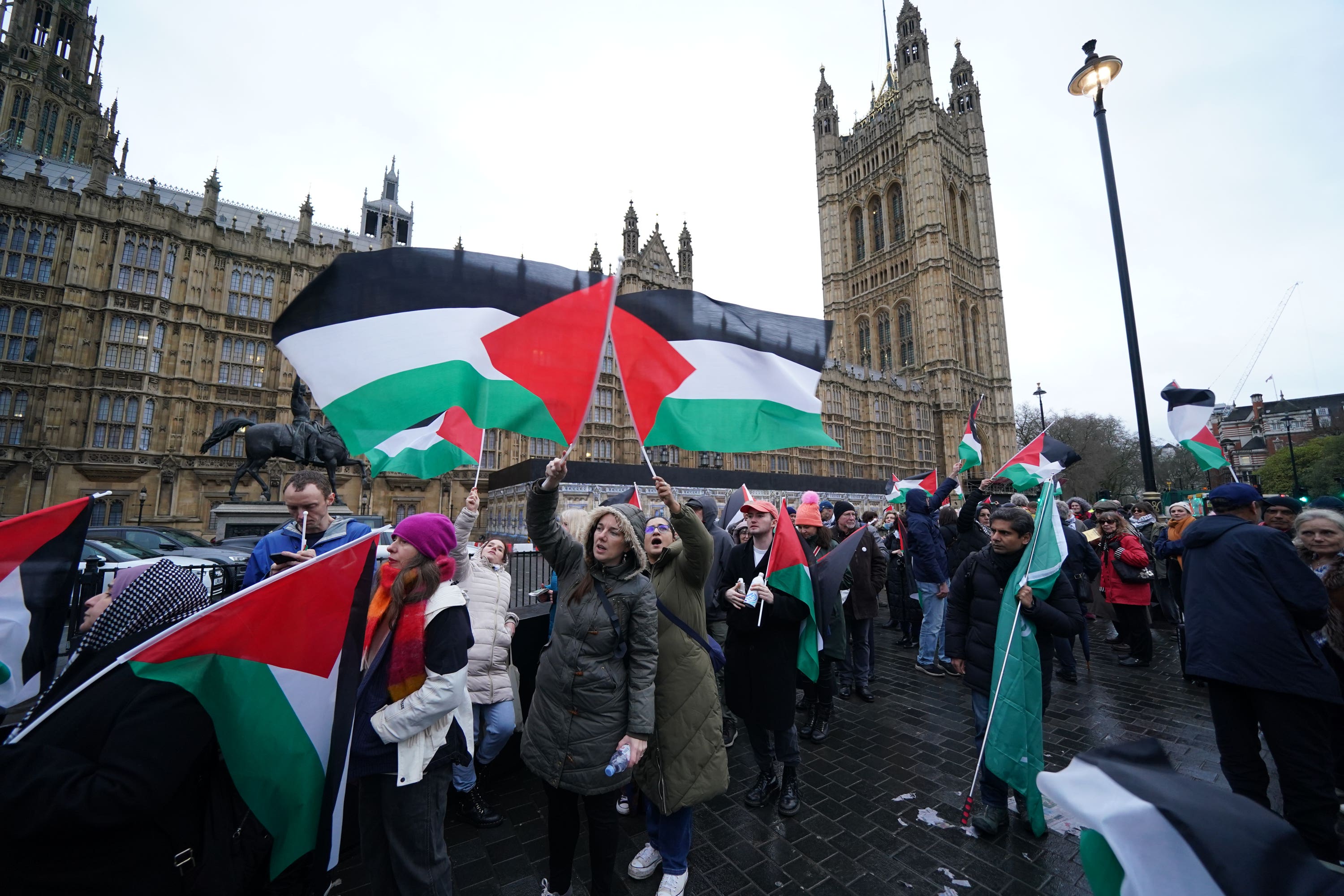Palestine Solidarity Campaign defends right to lobby Parliament ‘in large numbers’
The group said the issue of MPs’ security was ‘serious’ but should not be used to ‘shield MPs from democratic accountability’.

Your support helps us to tell the story
From reproductive rights to climate change to Big Tech, The Independent is on the ground when the story is developing. Whether it's investigating the financials of Elon Musk's pro-Trump PAC or producing our latest documentary, 'The A Word', which shines a light on the American women fighting for reproductive rights, we know how important it is to parse out the facts from the messaging.
At such a critical moment in US history, we need reporters on the ground. Your donation allows us to keep sending journalists to speak to both sides of the story.
The Independent is trusted by Americans across the entire political spectrum. And unlike many other quality news outlets, we choose not to lock Americans out of our reporting and analysis with paywalls. We believe quality journalism should be available to everyone, paid for by those who can afford it.
Your support makes all the difference.The Palestine Solidarity Campaign has defended the right to lobby MPs “in large numbers”, amid reports the group wanted so many protesters to turn up that Parliament would “have to lock the doors”.
The group said the issue of MPs’ security was “serious” but should not be used to “shield MPs from democratic accountability”.
Palestine Solidarity Campaign director Ben Jamal said thousands of people were “shamefully” denied entry into Parliament on Wednesday as they attempted to lobby MPs to vote in favour of a ceasefire in Gaza.
He added that the group was not involved in the projection of a “from the river to the sea” message on the building, but was “pleased to see it”.
The Times reported that Mr Jamal told a crowd of demonstrators in the build-up to the protest on Wednesday: “We want so many of you to come that they will have to lock the doors of Parliament itself.”
According to a video obtained by the newspaper, he also urged pro-Palestine protesters to “ramp-up pressure” on MPs.
Sir Lindsay Hoyle, the Commons Speaker who has faced calls to resign after going against convention during the SNP’s Opposition Day debate on a ceasefire, said his motivation for widening Wednesday’s discussion was fuelled by concern about MPs’ security because of intimidation suffered by some parliamentarians.
The issue of MPs' security is serious but cannot be used to shield MPs from democratic accountability
In a statement, Mr Jamal said: “This week over 80,000 people emailed their MPs ahead of the ceasefire debate. More than 3,000 came from across the UK to lobby their MPs in person, in one of the largest physical lobbies of Parliament in history.
“Shamefully, most were denied entry, ending up queuing for over four hours in the rain as extraordinary measures were introduced to limit the number who could meet their MPs face to face.
“We are aware of reports that MPs’ safety was put to the Speaker as a rationale as to why he should violate normal Commons procedures to allow the Labour amendment to be heard.
“The issue of MPs’ security is serious but cannot be used to shield MPs from democratic accountability.”
Mr Jamal added: “The idea that calling for people to lobby Parliament in large numbers is a threat to MPs or inspires fear in them is grotesque and undermines a basic principle of democratic government, that members of the public have a right to attend Parliament and ask to meet with their MPs face to face to articulate their concerns on any issue.”
He said the group “does not call” for protests outside MPs’ homes and believed parliamentarians have a right “to have their privacy respected”.
The Government’s political violence tsar has said police should have the powers to “disperse” protests around Parliament, MPs’ offices and council chambers that they deem to be threatening.
Baron Walney, the Government’s adviser on political violence and disruption, said on Friday that the “aggressive intimidation of MPs” by “mobs” was being mistaken for an “expression of democracy”.
The crossbench peer, who in December submitted a Government-commissioned review into how actions by political groups can “cross into criminality and disruption to people’s lives”, told BBC Radio 4’s Today programme he was calling for police forces to act “uniformly in stopping” protest outside MPs’ homes.